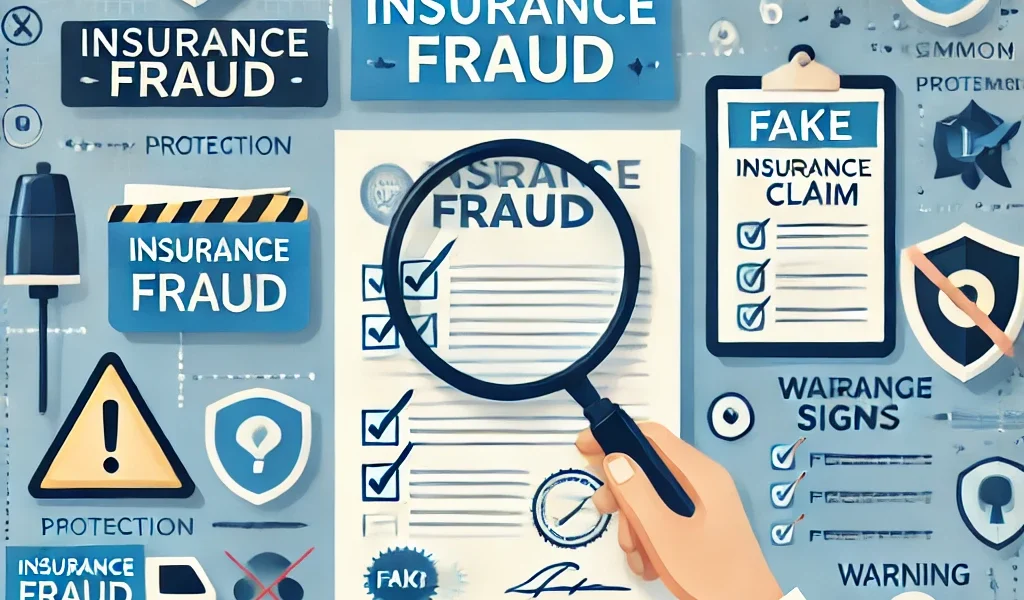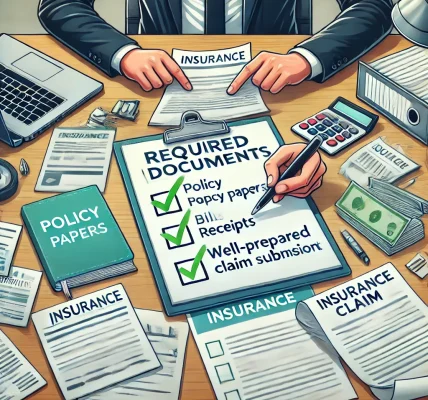Introduction
Insurance fraud is a growing concern worldwide, costing billions of dollars every year. Whether intentional or unintentional, fraudulent claims can lead to severe consequences, including policy cancellations, legal actions, and financial losses for both insurers and policyholders. As a responsible policyholder, understanding how to detect and prevent fraud while filing a legitimate claim is crucial. In this guide, we’ll explore various types of insurance fraud, red flags to watch out for, and steps to ensure a smooth and honest claim process.
1. Understanding Insurance Fraud
Insurance fraud occurs when someone deliberately deceives an insurer to receive benefits or payouts they are not entitled to. It can be committed by policyholders, third parties, or even professionals within the industry. Fraudulent claims not only affect insurers but also drive up premium costs for honest policyholders.
Types of Insurance Fraud
- Hard Fraud: A deliberate act where an individual fabricates a loss or incident to make a false insurance claim (e.g., staging an accident, faking injuries, or arson for insurance money).
- Soft Fraud: Also known as “opportunistic fraud,” where a real claim is exaggerated to receive a higher payout (e.g., inflating repair costs, misrepresenting damages).
- Internal Fraud: Fraud committed by insurance agents, adjusters, or employees, such as embezzlement or processing fake claims.
- Third-Party Fraud: Scammers outside the insurance policyholder circle manipulate the system (e.g., fake witness testimony, staged accidents involving multiple parties).
2. Red Flags of Insurance Fraud
While filing a claim, be aware of suspicious activities that may indicate fraud:
- Inconsistent or exaggerated claims: Details in the claim do not match witness statements or available evidence.
- Frequent claims: A policyholder repeatedly files claims for similar losses.
- Sudden increase in coverage: A policyholder significantly increases their coverage right before filing a claim.
- Lack of supporting documents: Missing receipts, repair estimates, or medical reports.
- Uncooperative service providers: Contractors, mechanics, or medical professionals refusing to provide detailed invoices or itemized breakdowns.
- Staged accidents or injuries: Accidents involving unfamiliar individuals who act suspiciously or provide scripted statements.
3. How to Protect Yourself from Insurance Fraud
a. Verify Your Documents and Transactions
- Always double-check your policy documents for accurate coverage details.
- Keep copies of all communications with your insurer.
- Ensure that receipts and invoices are legitimate and match the claim.
b. Work Only with Reputable Service Providers
- Choose verified repair shops, medical professionals, and contractors.
- Be cautious of providers who suggest inflating damages or billing insurance for unnecessary repairs.
c. Be Honest with Your Insurer
- Provide truthful information when filing a claim.
- Avoid exaggerating losses or damages, as insurers have investigative teams to verify claims.
d. Stay Informed About Common Fraud Schemes
- Be aware of staged accident scams or identity theft cases involving fake insurance claims.
- Keep an eye on industry trends and fraud prevention tips provided by your insurer.
e. Report Suspected Fraud
- If you suspect fraudulent activities, report them to your insurer’s fraud investigation department.
- Contact the local authorities or insurance regulatory bodies if necessary.
4. What to Do If You Are Accused of Insurance Fraud
If your claim is being investigated or you are falsely accused of fraud:
- Remain Calm and Cooperate – Provide all necessary documents and clarify any discrepancies.
- Gather Evidence – Keep records of communication, receipts, and proof of loss.
- Seek Legal Advice – If your insurer accuses you unfairly, consult a legal expert specializing in insurance claims.
- Request a Re-evaluation – If your claim is denied due to suspected fraud, ask for a second review with additional evidence.
5. Conclusion
Insurance fraud negatively impacts everyone by increasing premiums and reducing trust in the system. By staying informed and vigilant, policyholders can protect themselves and ensure a fair claims process. Always be truthful, work with trusted professionals, and report any suspicious activities to maintain the integrity of insurance claims.




